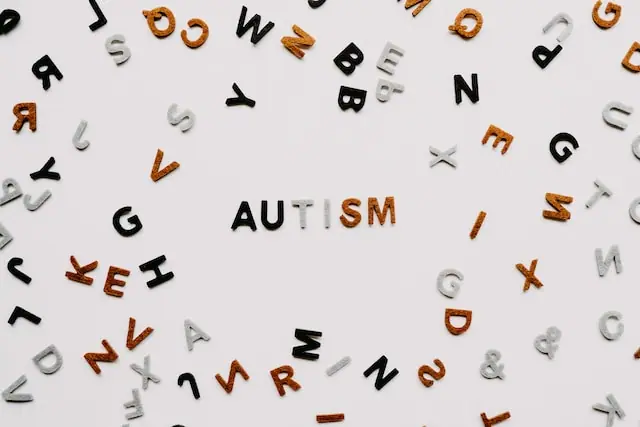
Understanding Autism as an Adult
Over the past few years, there has been an increasing awareness and comprehension of autism spectrum disorder (ASD). Although significant emphasis has been placed on children with autism, it’s imperative to acknowledge that autism doesn’t simply vanish with age. Numerous individuals persistently confront the challenges and distinctive perspectives linked to autism well into their adult years.
Within this blog post, we aim to explore the intricacies of comprehending autism in adulthood, bringing attention to the varied experiences, dispelling misconceptions, and highlighting the significance of nurturing a neurodiverse society.
Understanding Autism Spectrum Disorder
Autism is characterized as a spectrum disorder, indicating that its manifestation differs from person to person. The primary features of autism encompass difficulties in social communication and engaging in repetitive behaviors. However, the impact of these traits varies significantly among individuals. Some adults with autism exhibit exceptional abilities or talents, while others contend with more profound challenges in their daily lives.
Diagnosing Autism in Adulthood
The diagnosis of autism in adulthood differs from childhood, where it’s often identified early on. Many adults only receive their autism diagnosis later in life after an autism assessment. This delayed diagnosis can be attributed to various factors, including the evolving understanding of the spectrum and individuals’ adeptness at concealing their autistic traits. It isn’t uncommon for adults to pursue a diagnosis when grappling with challenges in interpersonal relationships, employment, or mental health issues.
Challenges Faced by Adults with Autism
- Social Interaction: Adults with autism may find social interactions challenging. They might struggle with non-verbal cues, maintaining eye contact, or interpreting social nuances, making it difficult to connect with others. This can lead to feelings of isolation and loneliness.
- Employment: Navigating the professional world can be particularly challenging for adults with autism. The workplace is often filled with social complexities, unwritten rules, and sensory stimuli that can be overwhelming. Securing and maintaining employment can be an ongoing challenge.
- Mental Health: Adults with autism are more susceptible to mental health issues, such as anxiety and depression. The constant effort to fit into a neurotypical world can take a toll on one’s mental well-being.
- Sensory Sensitivities: Sensory sensitivities, a common aspect of autism, can persist into adulthood. Bright lights, loud noises, or certain textures can be overwhelming for individuals with autism, affecting their daily lives and routines.
- Relationships and Intimacy: Forming and maintaining relationships, both platonic and romantic, can be complex for adults with autism. Communication differences and a heightened need for routine may pose challenges in understanding and responding to the emotional needs of others.
Dispelling Misconceptions
- Autism is a Childhood Disorder: One prevalent misconception is that autism is a childhood disorder that disappears as people grow older. The reality is that autism is a lifelong condition, and the challenges associated with it continue into adulthood.
- All Individuals with Autism Have Savant Abilities: While some individuals with autism have exceptional talents or savant abilities, this isn’t a universal characteristic. Autism manifests differently in each person, and many individuals have a wide range of skills and abilities.
- Lack of Empathy: Contrary to the stereotype suggesting that individuals with autism lack empathy, many actually possess a heightened sense of empathy. Nevertheless, they may encounter challenges in expressing or interpreting emotions in a way that’s consistent with neurotypical expectations.
Supporting Adults with Autism
- Access to Diagnostics and Services: Improving access to autism diagnostics and services for adults is crucial. Many people may go undiagnosed due to a lack of awareness or resources. Ensuring that adults can access appropriate support is essential for their well-being.
- Creating Neurodiverse Workplaces: Employers can play a significant role in supporting adults with autism by fostering neurodiverse workplaces. This involves creating an inclusive environment, providing reasonable accommodations, and recognizing the unique strengths that employees with autism bring to the table.
- Promoting Mental Health Awareness: Raising awareness about the mental health challenges faced by adults with autism is essential. This includes providing access to mental health resources and destigmatizing seeking help for mental health issues.
- Community and Social Support: Building supportive communities and networks for adults with autism is crucial. This can involve social groups, online forums, and other platforms where individuals can connect, share experiences, and offer support to one another.
Advocating for Change: Embracing Neurodiversity in Adulthood
As we continue our journey to understand autism as an adult, it becomes increasingly evident that advocating for change is a crucial step in creating a more inclusive society. The neurodiversity movement emphasizes the idea that neurological differences, including autism, are simply natural variations of the human brain rather than defects to be corrected. By embracing neurodiversity, we can foster an environment where people with autism are not only accepted but also valued for their unique perspectives.
The Power of Education
Education is a cornerstone in dismantling misconceptions surrounding autism. From an early age, society must be educated about the diverse nature of the autism spectrum and its continued impact into adulthood. Schools, workplaces, and communities can benefit from comprehensive educational programs that promote understanding, empathy, and acceptance.
Moreover, educational institutions should adapt their approaches to accommodate the various learning styles of individuals with autism. By providing tailored learning environments, educators can help unlock the potential of those who may have struggled in traditional settings, fostering a sense of achievement and confidence.
Employment Opportunities and Accommodations
Creating neurodiverse workplaces is a pivotal aspect of supporting adults with autism. Employers can actively seek to hire individuals on the spectrum. Recognizing the unique skills and perspectives they bring to the table. This inclusivity benefits not only the people with autism but also contributes to a more innovative and dynamic work environment.
Reasonable accommodations play a crucial role in ensuring the success of adults with autism in the workplace. Flexibility in work schedules, quiet spaces, and clear communication channels are just a few examples of accommodations that can make a significant difference. By implementing such measures, employers demonstrate their commitment to inclusivity and diversity.
Community Support and Connection
Building supportive communities for adults with autism is paramount. Social isolation is a common experience, and creating spaces where individuals can connect, share experiences, and offer mutual support is essential. Online platforms, local support groups, and community events can serve as avenues for fostering meaningful connections.
Moreover, community initiatives that promote awareness and inclusion, such as autism-friendly events and campaigns, contribute to a more accepting society. These efforts go beyond mere tolerance, aiming to create environments. Where individuals with autism can fully participate and contribute without fear of judgment or exclusion.
Understanding autism as an adult requires a shift in societal perceptions, increased awareness, and targeted support systems. By recognizing the diversity within the autism spectrum and dispelling myths, we can create a more inclusive society where people with autism can thrive.
It’s essential to celebrate the unique strengths and perspectives that adults with autism bring to the table. This fostering a world that embraces neurodiversity. Through education, empathy, and ongoing efforts to create inclusive environments, we can ensure that every adult with autism. And has the opportunity to lead a fulfilling and meaningful life.


